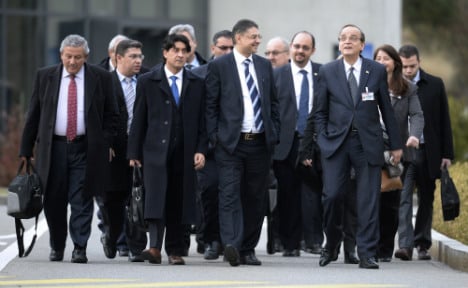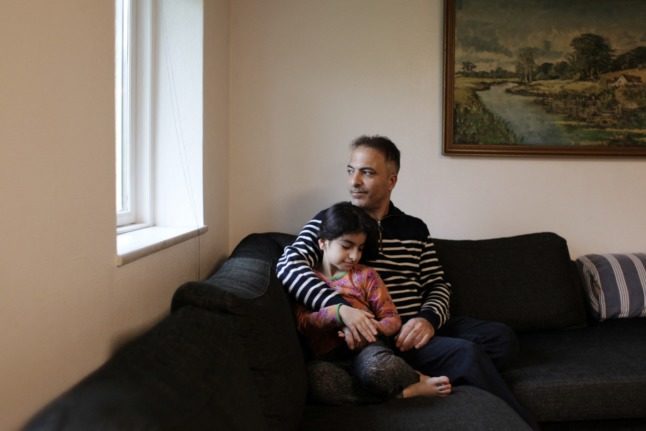The talks are set to resume at 11:00 am (1000 GMT) with UN mediator Lakhdar Brahimi acting as a go-between, after the two warring sides sat together in the same room for the first time on Saturday.
In what Brahimi said was a "good beginning", their first discussions centred on sending aid to besieged residents in the embattled city of Homs.
Brahimi said he hoped a deal could be reached on sending aid convoys on Sunday or Monday to Homs, where hundreds of families in the Old City are living under siege with near-daily shelling and the barest of supplies.
"If we achieve success on Homs we hope that this will be the beginning," Brahimi said.
Despite the failure to agree on any concrete proposals, Saturday still marked progress after President Bashar al-Assad's regime on Friday accused the opposition of obstructing the negotiations and threatened to walk away.
Pulled together by the United Nations, Russia and the United States, the two sides are meeting in the biggest diplomatic push yet to stem Syria's bloodshed after nearly three years of civil war.
The opposition insists the talks should focus on Assad leaving power and the formation of a transitional government based on an agreement reached during a first peace conference in Geneva in 2012.
The regime says Assad's role is not up for debate at this conference — dubbed Geneva II — and denies that the initial Geneva deal requires him to go.
Expectations are very low for a serious breakthrough at the talks, which are expected to last about a week, but diplomats have said simply bringing the two sides together for the first time was an important step.
With no one appearing ready for serious concessions, mediators are focusing on short-term deals to keep the process moving forward, including on localised ceasefires, freer humanitarian access and prisoner exchanges.
Erupting after the regime cracked down on protests inspired by the Arab Spring, Syria's civil war has claimed more than 130,000 lives and forced millions from their homes.



 Please whitelist us to continue reading.
Please whitelist us to continue reading.
Member comments